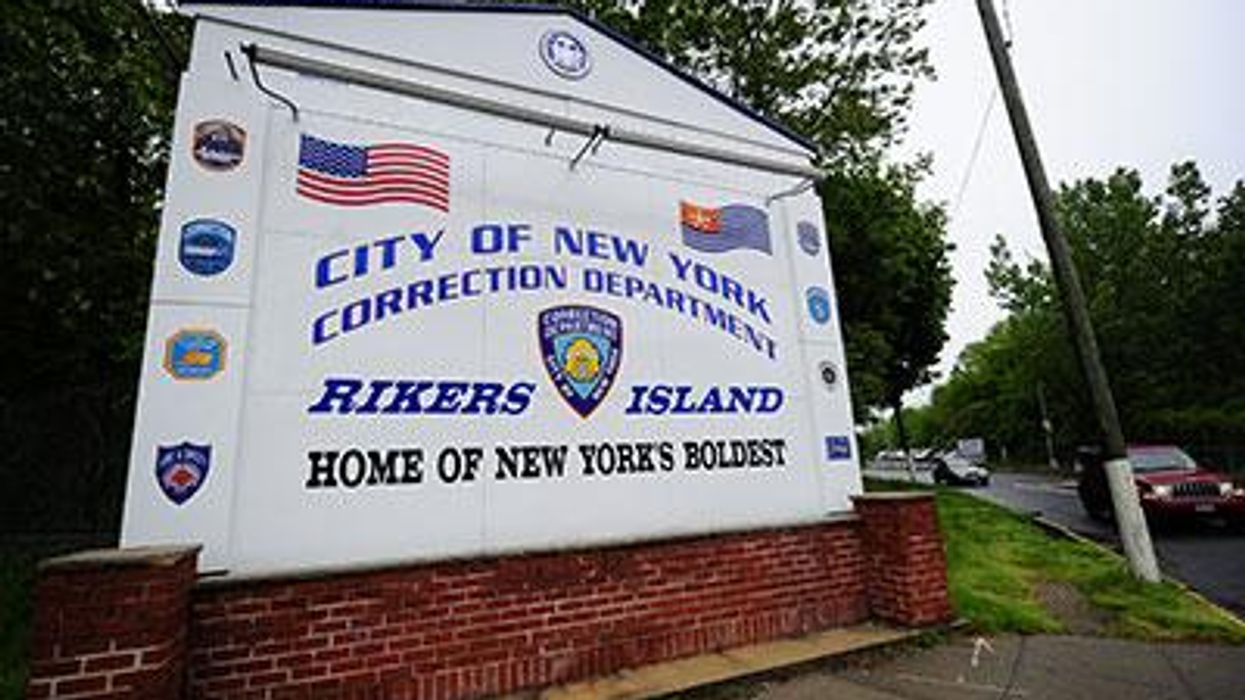New York City's Department of Correction will open a Transgender Housing Unit this week for trans women detained at Rikers Island.
The unit aims to provide a safer environment in the city-run facility for transgender women, who are up to 13 times more likely to experience violence in detention than cisgender (nontrans) inmates, according to a 2009 study cited by Lambda Legal.
Inmates will be placed in the 30-bed facility "voluntarily," according to a Tuesday statement from the city's DOC. Announcement of the new unit comes amid sweeping changes at the DOC under Commissioner Joe Ponte, who was appointed in April. The Transgender Housing Unit is intended to "offer transgender women safe and respectful separation from the general population," while offering access to medical and mental health care sometimes needed by transgender inmates, the statement notes.
"Because inmates are not all alike, the Department is creating specialized housing for many specific groups," Ponte said in that statement. "Just as adolescents, young adults, and mentally ill inmates have special needs, so do men who identify as women. Providing them with specialized housing and services is good policy and meaningful reform and is expected to reduce incidents involving these individuals while also leading to better long-term outcomes, including possible reductions in recidivism."
Prior to this new policy, on Rikers Island and in prisons and detention centers around the country, transgender women have generally been placed in men's prisons (incorrectly identified as men who dress like women), often within the general population. Those who are not housed in the general population are frequently placed in solitary confinement for extended periods of time, without human contact for an estimated 23 hours a day. Although detention officials tend to claim such segregation is an attempt to assure trans inmates' safety, legal and advocacy groups have decried the practice, pointing to the harsh emotional, psychological, and physical toll that extended segregation has on detainees.
The new unit on Rikers Island was constructed and implemented after consultation with advocacy organizations and focus groups of transgender women, in an effort to identify and best meet the needs of potential inmates, the DOC statement reads.
Placing LGBT inmates in separate housing facilities is a contentious issue, with advocates and corrections officials often disagreeing on the best way to ensure the safety and protect the dignity of those being detained. The American Civil Liberties Union notes that the recently revised guidelines of the federal Prison Rape Elimination Act recognize the physical and psychological risks of solitary confinement, while Lambda Legal highlights that the same legislation requires that such segregation be used only as a "last resort."
While Lambda Legal acknowledges that segregating LGBT prisoners "may offer some protection," the advocacy group contends that "segregating transgender prisoners as an entire group can stigmatize them; cut them off from work opportunities and other privileges and resources; and actually encourage violence by staff."
The DOC statement does expressly note that inmates held in the Transgender Housing Unit on Rikers Island will have access to "a range of programs and services."
"This includes recruiting dedicated staff who are comfortable working with this population and providing them with training on how to work with transgender women sensitively and effectively," said Assistant Chief Yolanda Canty in the DOC statement.




































































Charlie Kirk DID say stoning gay people was the 'perfect law' — and these other heinous quotes